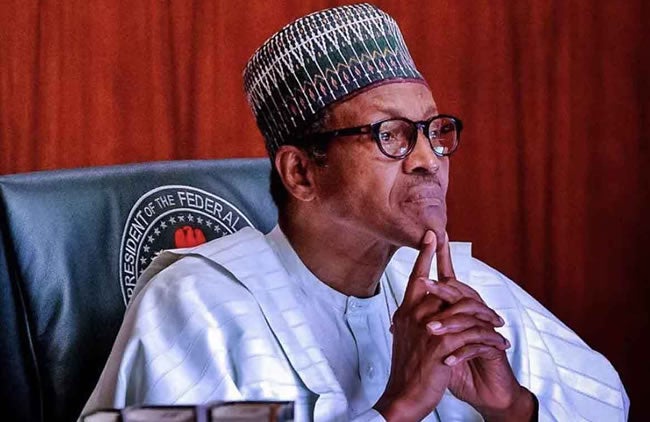FG’s Dilemma: Can Lockdown Ease Amidst Rising Deaths and Spread of COVID-19?

As the second stanza of the lockdown President Muhammadu Buhari imposed on the Federal Capital Territory (FCT), Lagos and Ogun States comes to a close tonight, the president faces a dilemma on the way forward in the nation’s fight to defeat the COVID-19 pandemic that has afflicted 1,273 persons, killed 40 and left only 239 off its hook so far across 32 states.
The nation recorded 91 new confirmed cases and five deaths yesterday. Four states, Ebonyi, Bayelsa, Kebbi and Taraba got their index cases. The 91 new cases were reported from 16 states, Lagos 43, Sokoto 8, Taraba 6, Gombe 5, Ondo 3, FCT 3, Edo 3, Oyo 3, Rivers 3, Bauchi 3, Osun 2, Akwa Ibom 1, Bayelsa 1, Ebonyi 1, and Kebbi 1.
Today the president would have to decide whether to ease the lockdown as requested by the Nigeria Governors’ Forum (NGF) even as the cases are rising and risk an exponential outbreak of the virus; or extend the restriction and imperil an already fragile economy, with possible civil disobedience from a restive citizenry that has been complaining of hunger arising from its inability to earn a living in the last four weeks.
Although the president received an update on the lockdown from the Minister of Health, Dr. Osagie Ehanire, and the Director-General of the Nigeria Centre for Disease Control (NCDC), Dr. Chikwe Ihekweazu, yesterday at his residence in Abuja, it is obvious that the options before him are not easy and whichever one he takes would have dire consequences for both the polity and the citizenry.
When the president announced the lockdown in a nationwide broadcast on March 29 and signed the COVID-19 Regulations 1, effective from March 30 for 14 days, he said it was necessary to rein in the virus at the three epicenters through testing, tracing and treatment, explaining that the measure would ease the achievement of the three-prong objective. Extending the restrictions on April 14 by another two weeks, he argued that it was necessary to consolidate the gains of the previous weeks.
But the outcome has not been cheering. The cases have continued to rise, spreading to more states and creating new epicenters, the latest of which is Kano State. Hamstrung by the global scarcity of testing kits, reagents, and personal protection equipment (PPE), the nation’s testing capacity has remained low around 1,000 testing per day coming far behind many other African countries, including Ghana and South Africa.
Although it has been argued that Nigeria’s molecular testing is more accurate by over 95% while its peers’ rapid testing has 44% accuracy, it’s a much slower method with the attendant effect of undermining the objective of scaling up testing, tracing and treatment.
In the meantime, the citizenry, many of which are in the informal sector of the economy, are complaining that left without a livelihood, coupled with the failure of the government’s palliatives, the choice before it is death by COVID-19 or hunger.
For the formal sector too, the lockdown has had serious adverse consequences on its businesses and has warned that continued shutdown would hurt the economy badly and it might be difficult to revamp it if it is not reopened immediately.
But with the rising cases of infection against the background of a sluggish rise in the capacity for testing, tracing, and treatment, it is obvious that this is hardly a good choice for the president as it could lead to an escalation of the COVID-19, a situation that might restrain the people from coming out for fear of contracting the virus.
“This would be counterproductive because the aim of opening the economy by getting back to work might be defeated,” said an economist that spoke to THISDAY last night, explaining: “In any case, it is only a healthy people that would be able to work and push the economy. If they fall sick or are afraid to come to work because of health concerns, how would the economy run?”
The other option of extending the lockdown has its downside as it has the potential for worsening the economy with the possibility of sliding into a recession as well as the danger of civil disobedience by the citizenry that is already restive. But the argument for this is that with effective implementation of the restriction, a rapid up-scaling of testing, tracing, and treatment, the virus could be brought under control in a matter of weeks and then the economy could be reopened.
The advantage of this, said another analyst, would be that the nation would have a healthy workforce uninhibited by health concerns that would be productive enough to kick start the economy.
“The economic gains of this would be more,” he said.
There were no indications of what recommendations the Presidential Task Force on COVID-19 gave to the president yesterday through the Minister of Health beyond Ehanire’s terse comment that the decision was Buhari’s to make. (Thisday)

